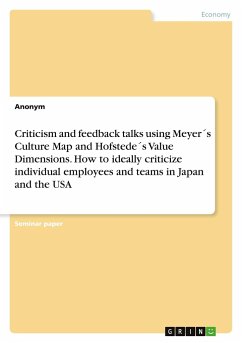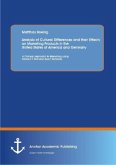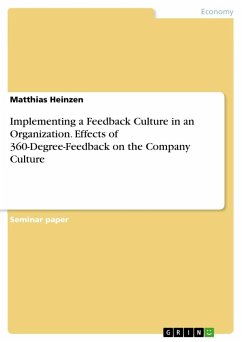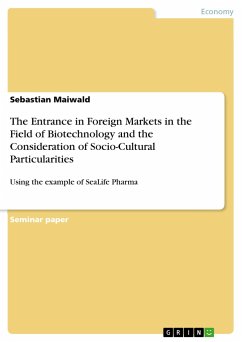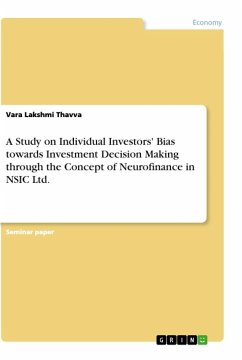Seminar paper from the year 2020 in the subject Leadership and Human Resource Management - Miscellaneous, grade: 1,3, Aachen University of Applied Sciences, language: English, abstract: This paper uses the theoretical foundations of Hofstede's Cultural Dimensions and Meyer's Cultures Map to develop feedback guidelines for a Dutch manager in Japan and a French manager in the USA. For this purpose, the countries concerned are first classified and compared using Meyer's and Hofstede's cultural classification methods. Based on the theoretical foundation, feedback guidelines are developed for the respective managers. With regard to the Dutch manager in Japan, it is particularly evident that he should be careful to use a language that is not too direct and that he needs to adapt to the Japanese high-context culture in both speech and behavior. The French manager in the USA is advised mainly to use diplomacy and understand flatter hierarchies and greater willingness to take risks.In a further step, the developed guidelines are compared with feedback rules of the Dutch company Philips and the French company WEKA. In both theory and practice, great importance is attached to an efficient discussion structure. At Philips, importance is also attached to a conversation at eye level and the employee's point of view, which corresponds with the theoretical findings. In the French example, less emphasis is placed on preparation, which is surprising in terms of the theoretical classification of France. Instead, a calm and "non-violent" communication is called for, which to a certain extent is also addressed in the theoretically based guideline.The results of the term paper provide assistance for managers in Japan and the USA. However, it must be remembered that cultures are a very complex construct and that, due to the scope of this term paper, it was not possible to include all components. Managers are advised to deal intensively with the host country's culture in order to ensure appropriate and efficient interaction with employees. The results also suggest further studies on the topic. Thereby additional theoretical approaches as well as experience reports from managers in practice should be included. Due to the constantly evolving worldwide cultural diversity, insightful findings can be expected.

